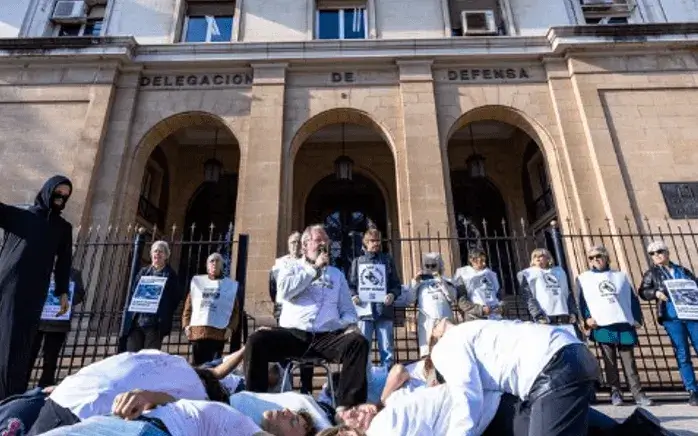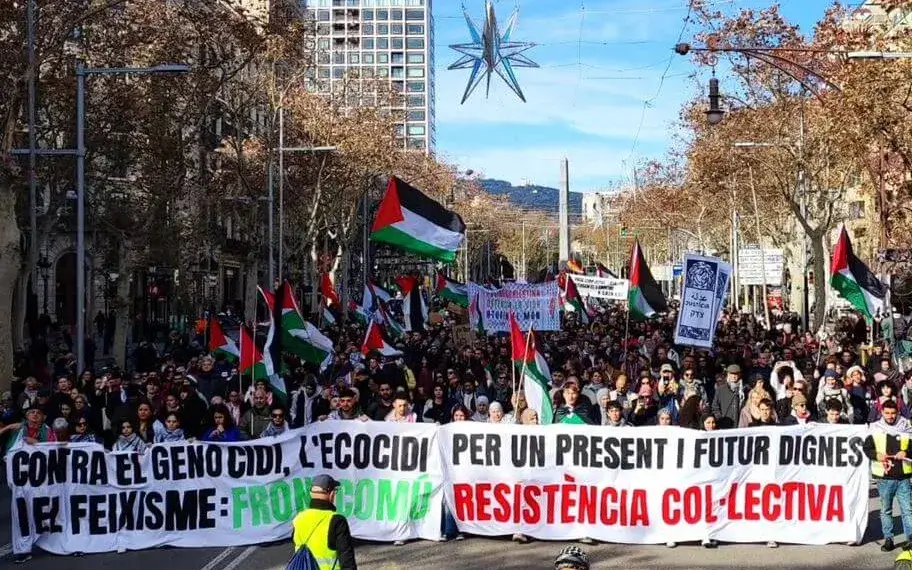In total, by the end of 2022, 860 million people could be in a situation caused by inequalities that have been exacerbated by the pandemic, inflation and war in Ukraine, according to a report by Intermón Oxfam.
The aftermath of the covid-19 pandemic, the exorbitantly rising inflation of food costs and the outbreak of the war in Ukraine make up a bleak picture of rising inequality. So much so that this situation could leave 260 million people in extreme poverty, that is, living on less than $ 1.9 a day this year. This is determined by the Oxfam Intermon report 'After the crisis, the catastrophe'.
These figures refer only to the additional millions of people who would be in this new extreme situation this year. Oxfam Intermon points out that, in total, by the end of 2022, 860 million people could live in extreme poverty. This dramatic situation is also reflected in estimates that the number of people suffering from malnutrition could reach 827 million in 2022.
"If radical and immediate action is not taken, we could face a further increase in the levels of extreme poverty and suffering of humanity," warns Oxfam Intermon director Franc Cortada. From the entity, Cortada believes that it is the governments that must get people out of situations such as hunger or poverty, to ensure their health and well-being. "We see a total lack of economic creativity and political will to do so," said Oxfam Intermon's director.
It is true that the pandemic has affected the resources of all governments, but unfortunately, once again, developing countries have been the hardest hit after being denied equal access to vaccines and being forced to implementing austerity measures, which has had a direct impact on increasing the poverty of entire countries.
"This picture is even more devastating if we consider the billions of dollars accumulated by a handful of powerful men with no interest in stopping this escalation," said Cortada. In fact, the wealth of multimillionaires has increased more since the beginning of the pandemic than in the previous fourteen years together. And in this situation, governments continue not to raise taxes on the richest people.
At the individual level, the incomes of many workers remain stagnant or even declining around the world. In addition, the pandemic has increased gender inequalities, as it is women who have the most difficulty in re-entering the world of work after the numerous job losses. The decline is evident from the data: in 2021, there were 13 million fewer employed women compared to 2019; in the case of men, pre-pandemic levels have already recovered.
You can download the full report in English via this link.
The consequences of inflation
The data presented by Oxfam Intermon is much more worrying than those of the World Bank, which estimates that worsening inequalities could plunge 189 million people into extreme poverty by 2022. The NGO estimates a much higher figure considering that the uncontrolled rise in prices in recent months would cause 65 million more people to fall into severe poverty.
This inflation harms people in poverty much more. While rising food prices account for 17% of consumer spending in the richest countries, in sub-Saharan African countries this figure reaches 40% of total spending. In March, was recorded the highest CPI in Spain since May 1985, reaching 9.8%, which means a global loss of purchasing power that mainly affects low-income households.
In view of all these effects, which have had such a strong impact on the increase in inequality and the number of people in extreme poverty, the entities regret the possibility that the processes achieved in recent years may be reversed in the face of this sudden crisis that has erupted. in the last three years.
Call for urgent action
In order to address this crisis, Oxfam Intermon has called for urgent action. Some of them are to introduce wealth taxes temporarily to finance the recovery from the social and economic crisis resulting from the Covid-19 pandemic; create a tax on the extraordinary profits of large corporations that have generated during this crisis; canceling debt payments to developing countries; and increase aid funds and allocate new funds to Ukraine and the reception of refugees.
To resolve the situation arising from inflation, the organization proposes several measures to address the rising price of food, which will protect the most affected people. Oxfam Intermon is also calling for the creation of a social protection fund to help the poorest countries ensure basic income security for their people.









Add new comment